Are you dreaming of a canine companion but dread the thought of constantly battling dog hair? You’re not alone! Many people are seeking small dog breeds that don’t shed, or at least shed very little. Luckily, there are plenty of adorable and affectionate options to choose from. This guide will introduce you to some of the best small dog breeds that minimize shedding, helping you find the perfect low-maintenance furry friend for your home.
Top Small Dog Breeds That Don’t Shed (or Shed Minimally)
Here’s a curated list of small dog breeds known for their minimal shedding, along with key characteristics and care tips:
Affenpinscher
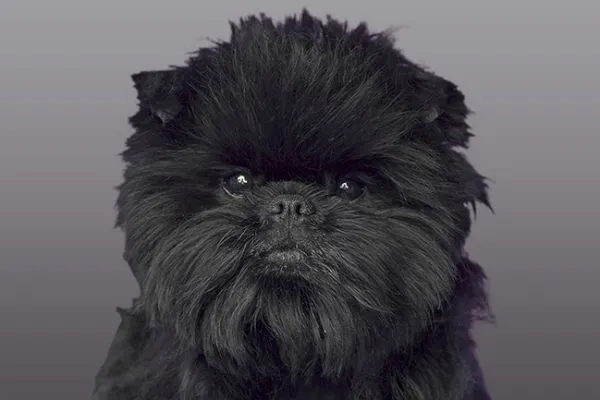 Affenpinscher looking directly at the camera with a slightly curious expression
Affenpinscher looking directly at the camera with a slightly curious expression
Nicknamed the “Monkey Terrier,” the Affenpinscher is a confident and intelligent toy breed. Their wiry coat sheds very little and is virtually odorless. A quick brushing twice a week is usually sufficient to keep them looking their best. These dogs are known for their playful personalities and make great watchdogs.
If you’re intrigued by this breed, explore Affenpinscher puppies available through the AKC Marketplace.
Basenji
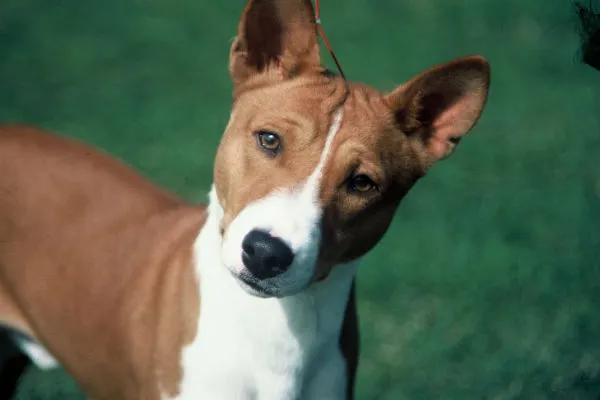 Basenji with a red and white coat sitting alertly
Basenji with a red and white coat sitting alertly
The Basenji is a unique hound breed known for its intelligence and cat-like grooming habits. They shed very minimally and have a short, fine coat that requires minimal upkeep. They are also famously quiet, making them suitable for apartment living. However, they need daily exercise and mental stimulation to thrive.
Consider checking out the AKC Marketplace for Basenji puppies if this breed appeals to you.
Bichon Frise
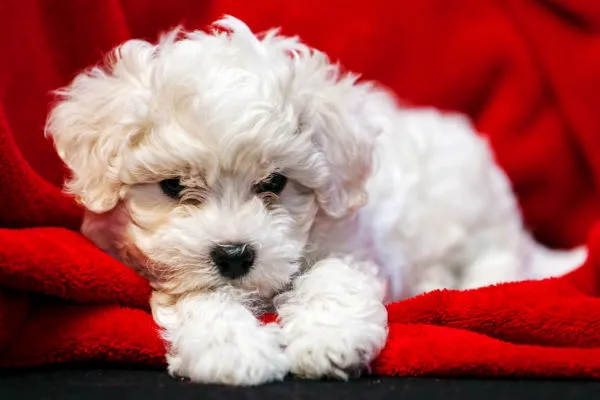 Bichon Frise with a fluffy white coat, looking directly at the camera with a cheerful expression
Bichon Frise with a fluffy white coat, looking directly at the camera with a cheerful expression
The Bichon Frise is a quintessential non-shedding breed. Their fluffy white coat is hypoallergenic, making them a good choice for people with allergies. However, their coat requires regular grooming, including frequent brushing and occasional baths, to maintain its signature powder-puff appearance. Explore the availability of toy cavalier king charles spaniel puppies for sale to discover alternative breeds.
If you are interested in this breed, you can find Bichon Frise puppies at AKC Marketplace.
Bolognese
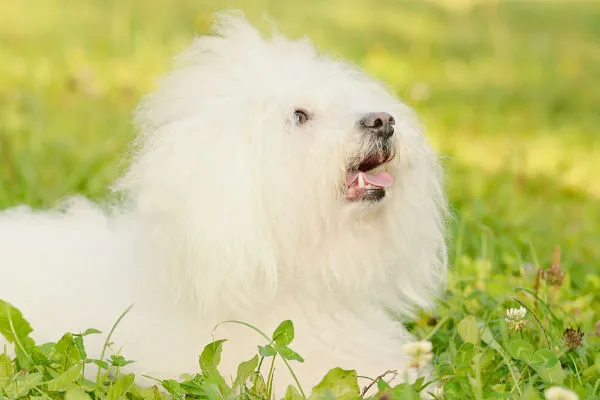 Bolognese dog with a fluffy white coat, sitting and looking to the side
Bolognese dog with a fluffy white coat, sitting and looking to the side
Similar to the Bichon Frise, the Bolognese boasts a fluffy, non-shedding coat comprised of hair rather than fur. They require regular brushing to remove dead hair and daily grooming to maintain their coat’s appearance. These gentle and affectionate dogs make wonderful companions.
If you think this breed is right for you, check out the AKC Marketplace for Bolognese puppies.
Brussels Griffon
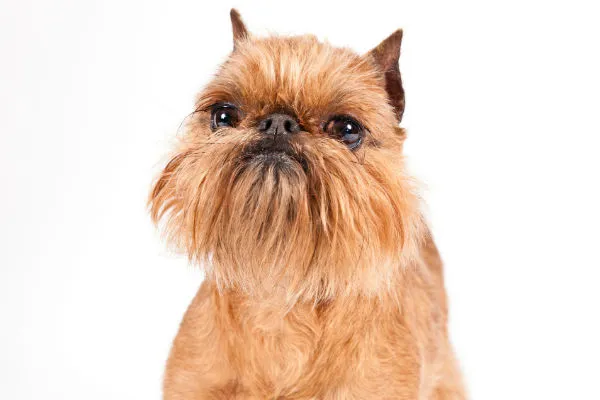 Brussels Griffon with a rough coat, looking directly at the camera with an alert expression
Brussels Griffon with a rough coat, looking directly at the camera with an alert expression
Despite their small size, Brussels Griffons are sturdy and adaptable. Both smooth-coated and rough-coated varieties shed minimally. They thrive with regular grooming and benefit from daily walks and indoor play. They are loyal and bond strongly with their families.
If you think this breed is right for you, check out the AKC Marketplace for Brussels Griffon puppies.
Chinese Crested
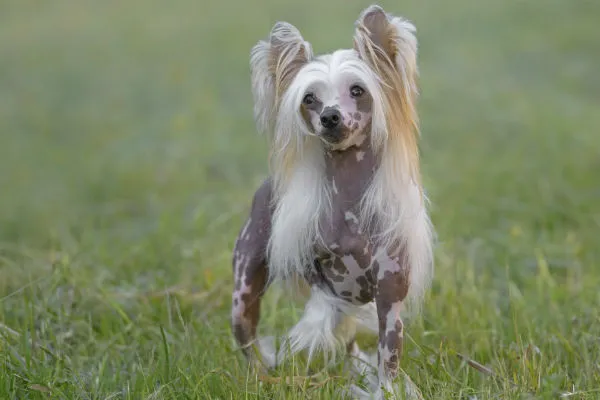 Chinese Crested dog, hairless variety, standing and looking to the side
Chinese Crested dog, hairless variety, standing and looking to the side
For those seeking a truly low-shedding option, the Chinese Crested is a unique choice. They come in two varieties: hairless and powderpuff. Hairless Chinese Crested have hair only on their head, tail, and feet. Powderpuff varieties have a fine coat that sheds very little. Hairless dogs require extra skin care, including protection from the sun and cold.
If you think this breed is right for you, check out the AKC Marketplace for Chinese Crested puppies.
Coton de Tulear
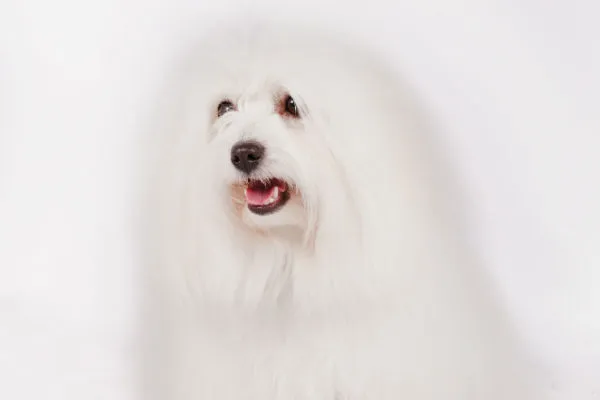 Coton de Tulear with a long, fluffy white coat, looking directly at the camera with a gentle expression
Coton de Tulear with a long, fluffy white coat, looking directly at the camera with a gentle expression
The Coton de Tulear is a small, cheerful dog with a distinctive long, fluffy coat that is considered hypoallergenic and low-shedding. They require daily grooming to prevent mats and tangles. Their gentle and playful nature makes them wonderful family pets.
If you think this breed is right for you, check out the AKC Marketplace for Coton De Tulear puppies.
Havanese
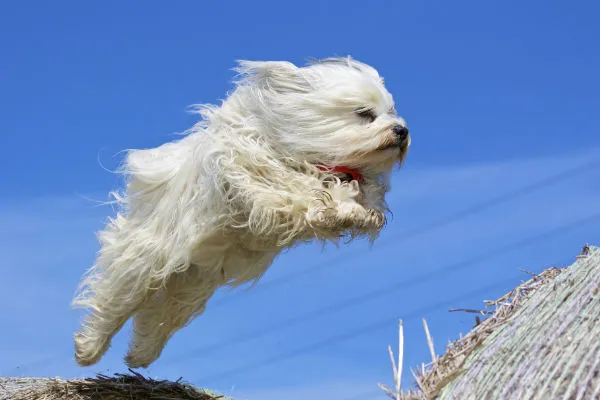 Havanese dog with a long, silky coat, looking directly at the camera with a playful expression
Havanese dog with a long, silky coat, looking directly at the camera with a playful expression
The Havanese, Cuba’s national dog, is known for its spunky personality and non-shedding coat. Their coat requires weekly brushing and regular baths to stay clean and healthy. These playful dogs thrive on human companionship.
If you think this breed is right for you, check out the AKC Marketplace for Havanese puppies.
Lhasa Apso
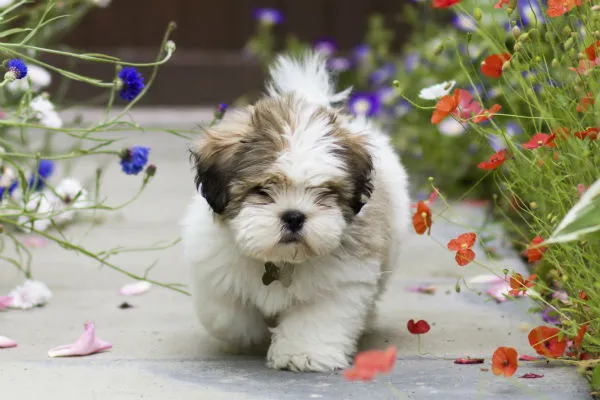 Lhasa Apso with a long, flowing coat, looking directly at the camera with a calm expression
Lhasa Apso with a long, flowing coat, looking directly at the camera with a calm expression
The Lhasa Apso, originating from Tibet, makes a calm and playful companion. While they don’t shed, their long coat requires regular maintenance. Many owners opt for a “puppy cut” to simplify grooming. They enjoy brisk walks and cuddling with their owners.
If you think this breed is right for you, check out the AKC Marketplace for Lhasa Apso puppies.
Maltese
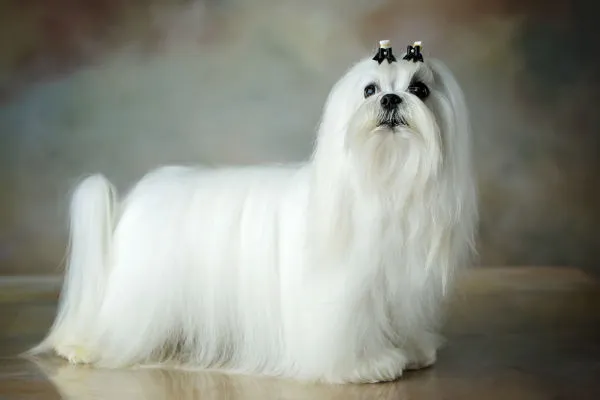 Maltese dog with a long, white coat, looking directly at the camera with a gentle expression
Maltese dog with a long, white coat, looking directly at the camera with a gentle expression
Maltese dogs have been charming people for centuries with their affectionate nature and beautiful, low-shedding coat. Their long, white coats require regular brushing to prevent mats. Their small size makes them ideal lap dogs.
If you think this breed is right for you, check out the AKC Marketplace for Maltese puppies.
Miniature Schnauzer
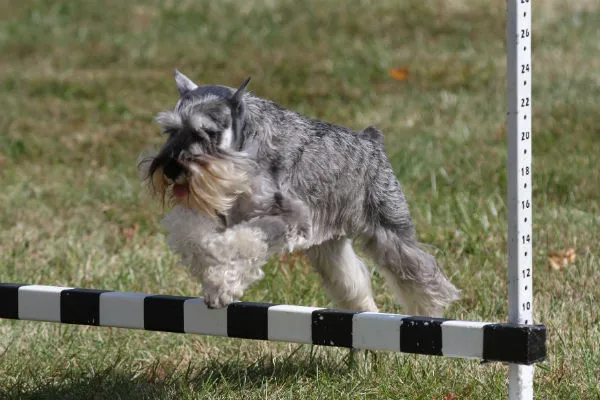 Miniature Schnauzer with a salt and pepper coat, looking directly at the camera with an alert expression
Miniature Schnauzer with a salt and pepper coat, looking directly at the camera with an alert expression
The Miniature Schnauzer is an intelligent, trainable, and adaptable breed that sheds very little. They thrive in both city and country settings, as long as they are close to their families. Weekly brushing and regular grooming are essential to maintain their distinctive appearance.
If you think this breed is right for you, check out the AKC Marketplace for Miniature Schnauzer puppies.
Poodle (Miniature and Toy)
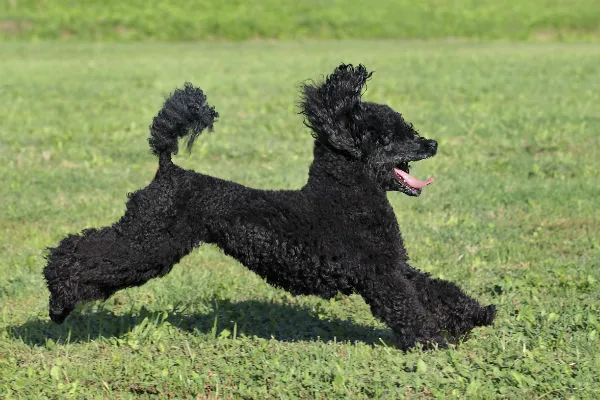 Poodle with a curly coat, looking directly at the camera with an intelligent expression
Poodle with a curly coat, looking directly at the camera with an intelligent expression
Poodles are renowned for being non-shedding and hypoallergenic. Miniature and Toy Poodles offer the same qualities as Standard Poodles but in a smaller size. They are highly intelligent and easy to train. Regular grooming is essential to maintain their coat.
If you think this breed is right for you, check out the AKC Marketplace for Poodle puppies.
Scottish Terrier
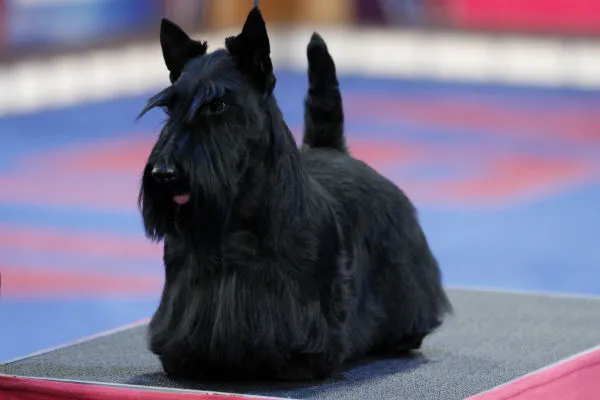 Scottish Terrier with a black coat, standing with a confident posture
Scottish Terrier with a black coat, standing with a confident posture
The Scottish Terrier, or Scottie, is a bold and confident breed with a distinctive wiry coat that sheds very little. Regular brushing, grooming, and occasional hand-stripping are needed to maintain their coat’s health and appearance. Scotties have a strong prey drive, so caution is advised around smaller animals.
If you think this breed is right for you, check out the AKC Marketplace for Scottish Terrier puppies.
Shih Tzu
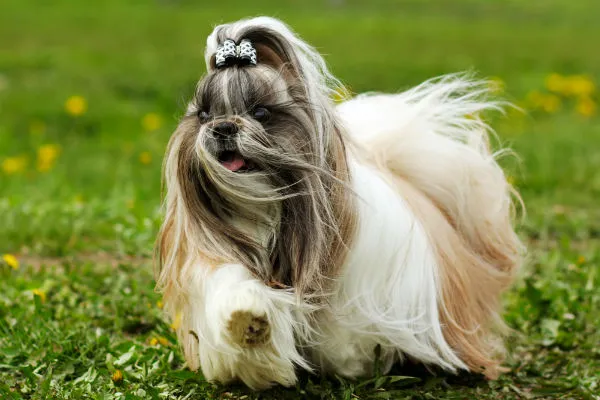 Shih Tzu with a long, flowing coat, looking directly at the camera with a regal expression
Shih Tzu with a long, flowing coat, looking directly at the camera with a regal expression
The Shih Tzu, a beloved house pet of the Tang Dynasty, has a long, silky coat that sheds very little. Their gentle and trusting nature makes them exceptional companions. Regular brushing is necessary to keep their coat looking its best.
If you think this breed is right for you, check out the AKC Marketplace for Shih Tzu puppies.
West Highland White Terrier
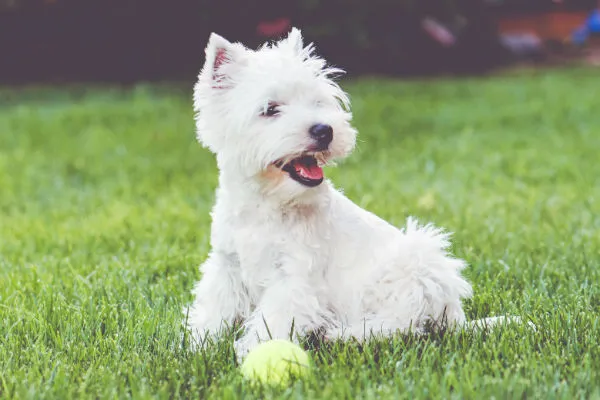 West Highland White Terrier with a white coat, looking directly at the camera with a happy expression
West Highland White Terrier with a white coat, looking directly at the camera with a happy expression
The West Highland White Terrier, or Westie, has a coarse white coat that sheds very little. They are intelligent, loyal, and happy dogs with moderate energy levels. Westies can be independent, which can make training a challenge at times.
If you think this breed is right for you, check out the AKC Marketplace for West Highland White Terrier puppies.
Xoloitzcuintli
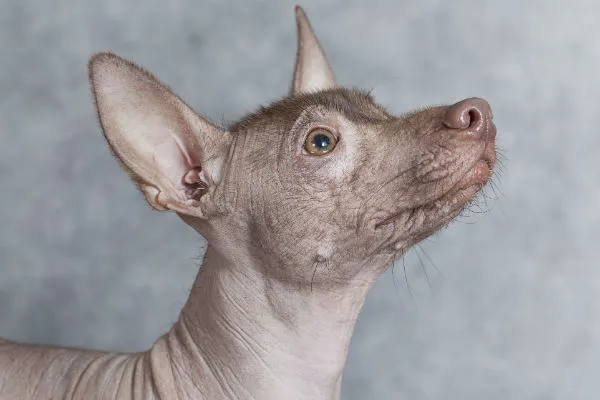 Xoloitzcuintli dog, hairless variety, standing and looking to the side with a serene expression
Xoloitzcuintli dog, hairless variety, standing and looking to the side with a serene expression
Also known as the Mexican Hairless, the Xoloitzcuintli is an ancient and rare breed that can be hairless or coated. Hairless varieties have some hair on their heads. Coated varieties have a very short, fine coat that sheds minimally. As with other hairless breeds, the Xolo needs extra skin care. They make attentive watchdogs and affectionate companions.
If you think this breed is right for you, check out the AKC Marketplace for Xoloitzcuintli puppies.
Yorkshire Terrier
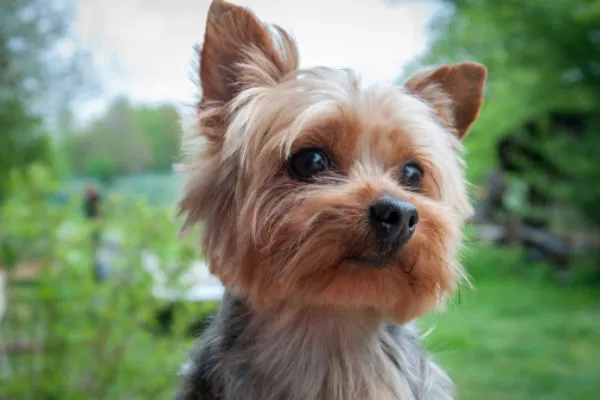 Yorkshire Terrier with a long, silky coat, looking directly at the camera with a sprightly expression
Yorkshire Terrier with a long, silky coat, looking directly at the camera with a sprightly expression
The Yorkshire Terrier, or Yorkie, is a popular toy breed known for its sprightly personality and beautiful, non-shedding coat. Daily brushing is essential to keep their silky coat looking its best. Despite their regal appearance, Yorkies have working-class roots, having been used to hunt rats in English clothing mills.
If you think this breed is right for you, check out the AKC Marketplace for Yorkshire Terrier puppies.
Other Considerations
The Terrier group is full of small dogs that don’t shed or shed minimally. Wiry- and coarse-haired Terriers tend to shed less than other breeds.
Finding the Right Dog for You
While these breeds are known for their minimal shedding, remember that “non-shedding” doesn’t mean “no maintenance.” All dogs require grooming and care. Carefully research each breed to find a dog that matches your lifestyle and personality. Purchase your dog from a reliable breeder, feed them a high-quality diet, and take them to the vet for regular checkups to ensure their health and well-being. Choosing a small dog breed who don’t shed is just the first step, providing proper care will ensure a lifetime of love and companionship.
